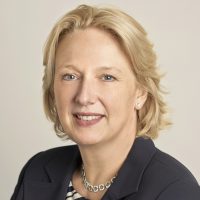
It comes after former Virgin Money chief executive Gadhia (pictured) was made a Dame in the New Year for services to financial services and women in the financial industry.
Dame Colette Bowe has also been appointed a member of the FPC; she is the current chairman of the Banking Standards Board.
The FPC’s primary function is to protect the stability of the UK’s financial system by identifying and addressing risks.
The macroprudential regulator was granted further powers over the buy-to-let market in 2016, meaning that it is able to direct the Prudential Regulation Authority and Financial Conduct Authority (FCA) to place limits on loan to values (LTV) and interest coverage ratios (ICR).
There are normally 13 members of the FPC, including Bank of England governor Mark Carney and another five members of staff from the central bank.
The committee also includes the chief executive of the FCA and a non-voting member from the Treasury.
The remaining five members are from outside the bank and selected for expertise in financial services.
Three-year terms
Dame Colette and Dame Jayne-Anne are to replace Richard Sharp and Martin Taylor, who are stepping down at the end of Q1 2019 and Q2 2019 respectively.
Both will serve three-year terms.
Chancellor Philip Hammond said: “The Financial Policy Committee’s importance to the protection and resilience of our economy cannot be overstated, which is why we have some of the finest talent in finance on it.
“The insight and experience that both Dame Colette and Dame Jayne-Anne bring will be valuable assets to the committee’s vital work.”
Bank of England governor Mark Carney added: “I am delighted to welcome the appointment of Colette and Jayne-Anne to the Financial Policy Committee.”















